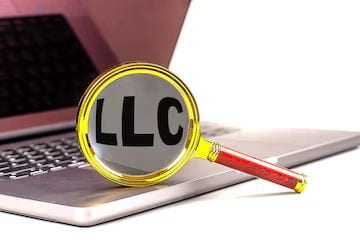Starting a Limited Liability Company (LLC) in Texas is a smart move for entrepreneurs looking to protect their personal assets while enjoying business flexibility. However, many first-time business owners make crucial mistakes that can lead to legal issues, extra costs, or even the dissolution of their LLC. To help you avoid these pitfalls, we’ll discuss the five most common mistakes and how to steer clear of them.
1. Not Understanding the Cost to Set Up an LLC in Texas
One of the biggest mistakes new business owners make is underestimating the cost to set up LLC in Texas. While Texas is known for being business-friendly, there are still mandatory fees you need to consider. The Texas Secretary of State charges a $300 filing fee for a domestic LLC and $750 for a foreign LLC. Additionally, you may need to pay for a registered agent service, which can range from $50 to $300 annually if you choose a professional provider. Some entrepreneurs also overlook expenses like obtaining an Employer Identification Number (EIN), business permits, or licenses, which can vary by industry.
2. Failing to Appoint a Registered Agent
Every LLC in Texas must designate a registered agent, which is a person or business entity responsible for receiving legal documents on behalf of the company. Many business owners either forget to appoint one or use their personal address without considering privacy concerns.
A professional registered agent service ensures that all legal notices and compliance documents are properly handled, reducing the risk of missing important deadlines or legal actions. If you act as your own registered agent, you must be available during standard business hours, which can be inconvenient.
3. Neglecting the Operating Agreement
An Operating Agreement outlines how your LLC will be managed, including the roles of each member, profit distribution, and procedures for resolving disputes. Texas law does not require an LLC to have an Operating Agreement, which leads many business owners to skip this step.
However, without an Operating Agreement, your LLC may be subject to default state rules that might not align with your business goals. Additionally, in case of disputes among members, a well-drafted agreement can help prevent conflicts from escalating. Even if you’re a single-member LLC, an Operating Agreement reinforces your business’s legitimacy and can provide liability protection.
4. Overlooking State and Federal Compliance Requirements
After forming an LLC in Texas, your responsibilities don’t end with registration. A common mistake is failing to comply with state and federal regulations, which can lead to penalties or even dissolution. Here are some compliance steps to keep in mind:
Texas Franchise Tax: Even if your LLC is not making a profit, you may still need to file a Franchise Tax Report annually with the Texas Comptroller’s office.
Annual Public Information Report: Texas LLCs must file this report to keep business records updated.
Business Licenses and Permits: Depending on your industry, you may need specific licenses or permits at the local, state, or federal level.
Employer Identification Number (EIN): If you plan to hire employees or open a business bank account, you must obtain an EIN from the IRS.
Ignoring these compliance requirements can result in fines or the administrative dissolution of your LLC.
5. Using the Wrong Business Structure
Choosing the wrong business structure is another common mistake. Some entrepreneurs assume that an LLC is always the best option when, in reality, another structure like an S-Corp election for tax purposes may be more beneficial.
For instance, LLC owners are subject to self-employment taxes on all profits. By electing S-Corp status, business owners can pay themselves a reasonable salary while taking additional earnings as distributions, which are not subject to self-employment taxes. Consulting a tax professional before finalizing your LLC formation can help you determine the best structure for your specific business needs.
Conclusion
Starting an LLC in Texas is an exciting step toward business success, but it’s essential to avoid common mistakes that can lead to unnecessary expenses and legal complications. By understanding the cost to set up an LLC in Texas, appointing a reliable registered agent, drafting an Operating Agreement, complying with state and federal requirements, and choosing the right business structure, you can ensure your LLC is built on a strong foundation.
If you’re ready to take the next step, be sure to research carefully and use reputable online services to create LLC online Texas efficiently and correctly. With proper planning, your LLC can thrive in the competitive Texas business environment!









